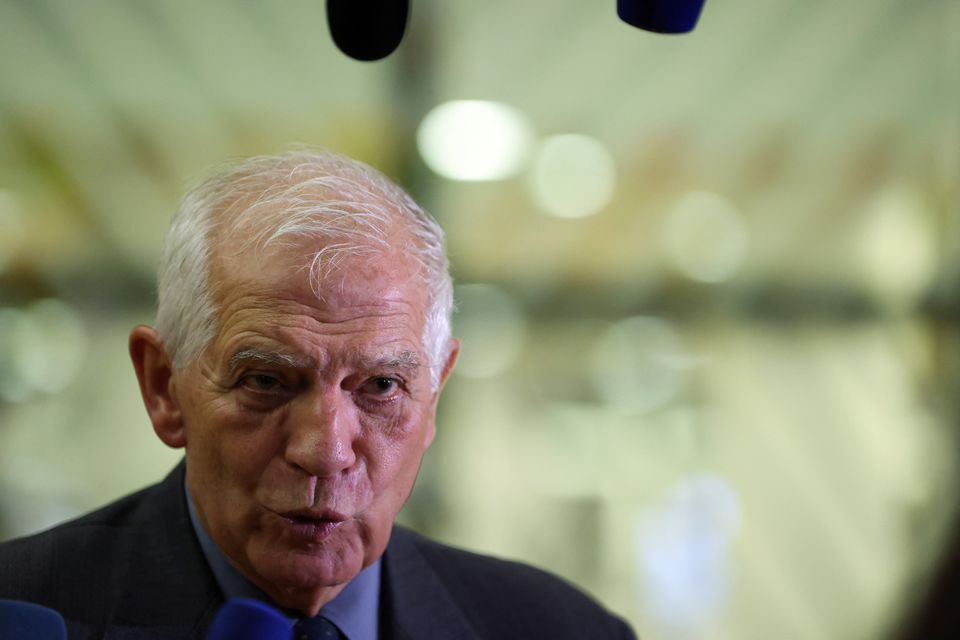Over the past month, the holy Muslim book has been subject to acts of desecration by extremist elements in three separate incidents in Sweden and Denmark, whose governments have sanctioned and justified such insults as “freedom of expression.”
“The EU reiterates its strong and determined rejection of any form of incitement to religious hatred and intolerance. Respect for diversity is a core value of the European Union. This includes respect for other religious communities,” Borrell said in a statement released on Wednesday.
A Sweden-based Iraqi refugee, identified as Salwan Momika, desecrated the Holy Qur’an first in front of Stockholm’s biggest mosque in late June. For the second time, he repeated the desecration act outside the Iraqi Embassy in the same city on Thursday, amid strict protection provided by the Swedish police.
And on Friday, members of an Islamophobic Danish group, called Danske Patrioter, desecrated Muslims’ holy book in front of Iraq’s Embassy in Denmark’s capital city of Copenhagen.
Also on Tuesday, the small far-right group set fire to copies of the Qur’an in front of the Egyptian and Turkish Embassies in the Danish capital, in another blasphemous act against the Muslim holy book.
“The desecration of the Quran, or of any other book considered holy, is offensive, disrespectful and a clear provocation. Expressions of racism, xenophobia and related intolerance have no place in the European Union,” Borrell added.
“We continue to stand up for freedom of religion or belief and freedom of expression, abroad and at home; but not everything that is legal is ethical,” the EU foreign policy chief stressed.
Borrell also called for standing together for “mutual understanding and respect”, emphasizing that such acts, committed by individual provocateurs, “only benefit those who want to divide us and our societies.”
The acts of sacrilege have opened the floodgates of protests across the Muslim world, including in Iran, with all Muslim countries issuing vehement condemnations of the reprehensible profanity.
